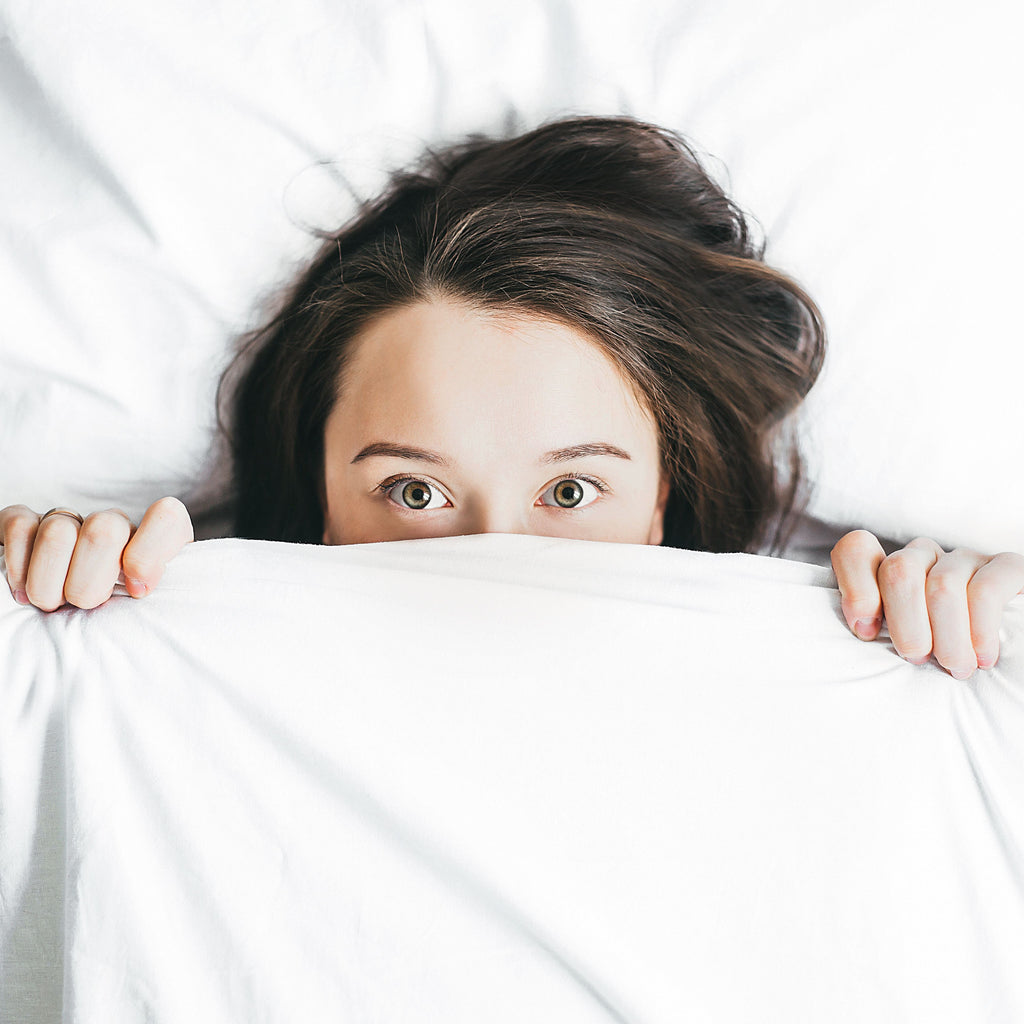
By Ginny Hain- Contributing Blogger
Be honest here, when was the last time you got a good night's sleep? I'm talking 7-9 hours of uninterrupted zzzs? Now, how about the last time you experienced a number of nights in a row like that?
If it's been awhile, you're not alone. A full third of Americans are chronically sleep deprived and across the US and Europe, the average person only gets 6.8 hours of sleep per night. The reasons why include longer working hours, higher stress levels, family responsibilities, and the infinite scrollability of social media, just to name a few.
But with enough coffee and sleeping in on weekends it's possible to make up for that lost sleep, right? Unfortunately not. It turns out, getting too little sleep has both long and short term effects on health, mood, and even life-span.
Sleep is a big deal.
Short Term Effects
Just how much of a big deal is getting enough sleep? First off, even short term sleep deprivation can be a big downer on your mood. A study by the University of Pennsylvania found that subjects who slept 4.5 hours a night for just a week reported feeling sadder, more depressed, and angrier than usual. Unfortunately, feelings like this can also make it harder to sleep, as the mind remains preoccupied with the stress involved in each of these emotions even as the body is ready to hit the hay.
Not getting enough rest can also negatively affect your ability to ward off sickness. Sleep is a time for the body to restore itself, catching up on different processes. This includes the production of a protein called Cytokines which is tasked with fighting off foreign invaders that enter the body like bacteria and viruses. When Cytokines levels are lower, the body becomes less able to repel these invaders, leaving it more susceptible to infection and sickness. Not sleeping enough also means the immune system is physically less capable of warding off sickness sheerly because when it's tired, it's like us—lacking the energy reserves to do its job correctly.
Long Term Effects
Whereas the short term effects of sleep-deprivation are more well-known, the long-term effects are only more recently being fleshed out through scientific studies and research. The results aren't too rosy either.
For one, scientists are beginning to uncover a suggested link between long-term sleep deprivation and an increased risk of obesity. A 2004 study found that subjects receiving less than 6 hours of sleep a night were 30% more likely of gaining weight and becoming obese than those getting between 6 and 9 hours per evening.
Remember how sleep is a time for beneficial hormone production? Insufficient sleep decreases the amount of Leptin in the body, a hormone which indicates the feeling of satiation. Being tired can also impede your ability to rationally make decisions and that, in conjunction with a lack of energy, can translate into cutting out the workout routine and reaching for the unhealthy late night snack.
A number of studies also suggest that insufficient sleep over time can increase the risk of Type 2 Diabetes by as much as 4.5 times. This is because too little sleep impacts the way the body processes glucose and decreases levels of insulin, which regulates blood sugar.
Finally, though there is still relatively little understanding as to why, research is also beginning to show that not getting enough sleep can lead to higher rates of stroke, heart disease, and even early mortality. Yikes!
When it comes down to it, getting adequate sleep each night is a big deal, both now and later on down the line. As humans, we sleep a full hour and a half less than we did just a hundred years ago. While the chances of getting back to that 8.5 hours a night may be slim, there are things you can do to to ensure that what sleep you can get is of the highest quality and the longest duration, leaving you happier, healthier and with more energy to take on the day.
Here are some tips for getting the best sleep you can:
- Try to maintain a consistent bedtime. This helps the body fall into a routine sleep-wake cycle.
- Get a little exercise. Being active during the day makes it easier to fall asleep when the time comes.
- Keep the phone out of the bedroom. And the TV. And the tablet. The light emitted from these devices suppresses the production of Melatonin, a hormone which relaxes and aids in deep sleep.
- The Kindle and old fashioned book can stay. Reading before bed reduces stress levels, allowing you to fall asleep faster.
- Avoid caffeine, alcohol, and large meals for several hours before bed. Each stimulate the body or have effects that may disrupt sleep hours later.
Sweet Dreams!
References:
https://www.healthysleep.med.harvard.edu/need-sleep/whats-in-it-for-you/mood
https://www.cdc.gov/features/sleep/index.html
https://www.nhs.uk/live-well/sleep-and-tiredness/why-lack-of-sleep-is-bad-for-your-health/
https://www.sciencedaily.com/releases/2012/04/120417080350.htm https://www.healthline.com/health/sleep-deprivation/effects-on-body#7

